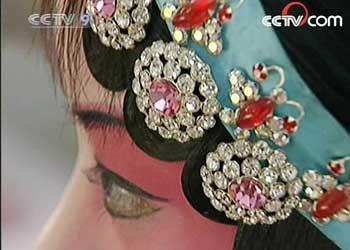Source: CCTV.com
05-07-2008 16:37
China is home to a rich trove of regional operas. Their works contain the highest expressions of history, daily life, religion, emotional turmoil and human aspiration. But many works were abandoned during the ten-year Cultural Revolution from 1966 to 1976. Intent on saving and revivifying these precious cultural legacies, the government initiated the China Opera Festival. On today's "Style Watch", we take a close look at how the two-decade old festival remains a major force for protecting marginalized Chinese opera.
 |
| China is home to a rich trove of regional operas. Their works contain the highest expressions of history, daily life, religion, emotional turmoil and human aspiration. |
Since ancient times, Suzhou has been a favored place for people to turn their backs from worldly affairs. World weary politicians and scholars set up luxurious gardens. They led lives of refinement, immersed in art and music. Some --swept with inspiration -- created operas based on life amid the gardens. Poetry, romance, elegant music and beautiful surroundings integrated in what we know today as Kunqu Opera.
Today Kunqu opera, considered the pinnacle of Chinese regional operas, is recognized by UNESCO as an intangible cultural heritage. Centuries after its emergence, Kunqu opera appears well on its way to renewed stature.
In late 2007, Kunqu became the focal image on the logo of the 10th China Opera Festival. Suzhou played the rotating host to the biennial event for the first time. Suzhou, as well as the city's renascent Kunqu opera, may point the way for ancient operas to survive the onslaught of modern entertainment. Still the matter is not fully resolved, and sustaining the regional operas remains the vital challenge for the festival.
During the two week-long event, 30 operas rooted in various regions were staged in Suzhou's theatres. Some of the work are virtually unheard outside their hometowns.
Every year, the festival, which serves to highlight the country's cultural diversity, brings a languishing operatic genre under the spotlight.
